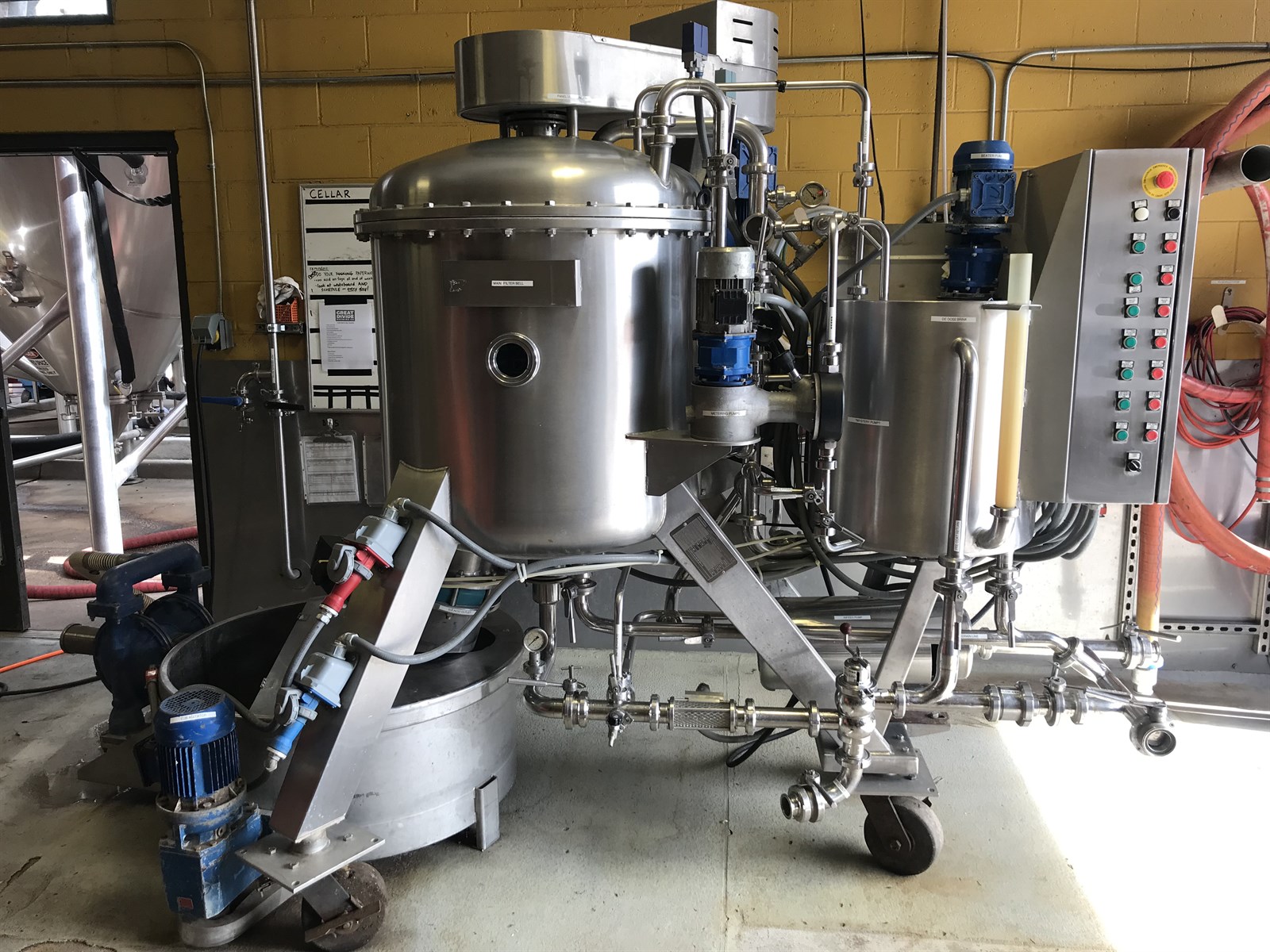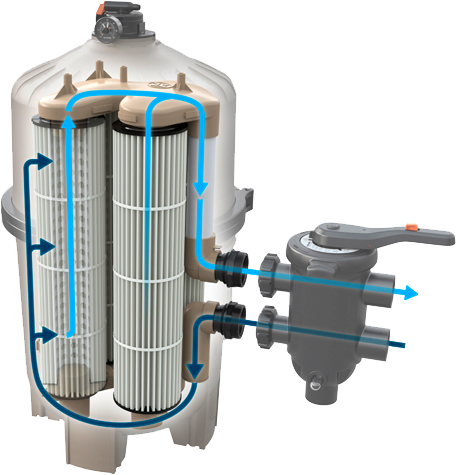Unlocking the Conveniences of Diatomaceous Earth Filtering System for Tidy and pure Water
The exploration of diatomaceous planet (DE) filtering system presents an engaging choice for those seeking sustainable and efficient water purification methods. As the need for clean water continues to climb globally, recognizing the diverse applications and benefits of DE filters may reveal crucial understandings for both household and commercial usage.
What Is Diatomaceous Planet?
Diatomaceous earth, frequently described as DE, is a naturally occurring stratified rock composed primarily of the fossilized remains of tiny, aquatic organisms recognized as diatoms. These single-celled algae are rich in silica, which is the main element of DE. The one-of-a-kind structure of diatomaceous earth is composed of tiny, permeable particles that provide a high surface, making it an efficient filtering tool.
DE is generally harvested from ancient lake beds and deposits, which have actually built up over hundreds of years. It looks like a penalty, white to off-white powder, and its chemical structure mainly includes silicon dioxide, in addition to trace amounts of different minerals. This structure is what gives DE its impressive residential or commercial properties.
Along with its application in water filtration, diatomaceous planet is used in a range of industries, including agriculture, food storage space, and insect control. Its capability to soak up moisture and its rough high qualities make it an important source in these areas. Overall, diatomaceous planet stands out as an eco-friendly choice for different applications because of its all-natural beginning and performance in purification procedures.

How Diatomaceous Planet Filtering Functions

When water goes through a diatomaceous planet filter, the great fragments are captured in the complex network of small pores. The dimension and form of these pores are essential, as they are created to target specific impurities while enabling clean water to stream through. As water moves with the filter tool, the mechanical activity of the diatomaceous earth captures larger bits, while smaller sized pollutants are taken in or physically obstructed.
In addition, the surface supplied by diatomaceous earth is comprehensive, boosting its ability to hold contaminations. This results in a steady build-up of caught particles, which can be occasionally removed via a backwashing process. This method makes certain constant filtering effectiveness and contributes to the total efficiency of maintaining pure and clean water.
Benefits Over Standard Filtration
When contrasting diatomaceous earth filtering to traditional purification methods, numerous advantages emerge that enhance water filtration performance. Among the key benefits is the premium filtering capacity of diatomaceous earth (DE), which can get rid of smaller bits and contaminations that conventional filters might miss. The microscopic structure of DE permits it to capture pollutants, consisting of bacteria and protozoa, resulting in cleaner water.
In addition, diatomaceous earth filters tend to have a much longer lifespan than typical media, lowering the frequency of substitute and maintenance. This durability not just reduces functional costs yet also decreases waste, adding to more lasting techniques. DE filters additionally operate at lower stress, which can cause energy cost savings in large applications.
Another considerable benefit is the flexibility of diatomaceous earth. It can be made use of efficiently in different contexts, from local water therapy facilities to specialized industrial applications (diatomaceous earth filtering). The all-natural make-up of DE makes it an environment-friendly choice, without hazardous chemicals and toxins frequently connected with artificial purification systems
Applications in House and Market
Many applications of diatomaceous planet filtering system can be located in both house and commercial settings, highlighting its adaptability and efficiency in water purification. In property atmospheres, diatomaceous earth (DE) filters are commonly employed in swimming pools, effectively capturing particles and microorganisms, thus maintaining water clarity and hygiene. In addition, many homes use DE in home water filtration systems, where it serves to remove contaminations, sediment, and harmful pathogens, making certain secure alcohol consumption water.
In commercial applications, diatomaceous earth filtering is indispensable to different fields, including food and drink manufacturing, drugs, and wastewater therapy. In the food industry, DE is used in the filtering of beer and wine, promoting the removal of yeast and various other particulates while protecting the beverage's flavor account. Moreover, in wastewater therapy facilities, DE filters play an important duty in boosting water high quality by capturing pollutants and promoting the recycling of water resources.
The effectiveness of diatomaceous earth in both house and industrial applications underscores its important duty in promoting tidy water access, contributing to public health, and supporting lasting practices.

Picking the Right DE Filter
Selecting the appropriate diatomaceous earth (DE) filter is crucial for ensuring ideal water filtration, whether for industrial or domestic usage. diatomaceous earth filtering. The option of a DE filter depends this page upon numerous essential next factors, consisting of the specific application, flow rate needs, and the desired level of filtration
First, evaluate the volume of water to be filtered. For residential usage, smaller filters suffice, while industrial applications might demand bigger, high-capacity systems. Next off, consider the flow price; it is very important to pick a filter that can take care of the called for throughput without jeopardizing water high quality.
Furthermore, examine the filtering level; DE filters can be found in numerous grades, impacting the removal of impurities and particulates. As an example, higher-grade filters are ideal for applications requiring rigid purity levels.
Finally, consider the maintenance requirements and the schedule of substitute DE powder. Filters that are simpler to maintain and have conveniently offered products will reduce downtime and functional costs. By meticulously taking into consideration these elements, one can choose a DE filter that meets details requirements, ensuring the distribution of secure and clean water.
Verdict
In summary, diatomaceous earth filtering system represents a substantial advancement in water filtration technology, offering improved efficiency and efficiency in capturing pollutants. Its one-of-a-kind permeable structure assists in superior purification, while its eco-friendly homes add to sustainability. The long life and reduced operational stress visite site of DE filters advertise power financial savings, making them a viable alternative for various applications in both household and industrial settings. Accepting diatomaceous earth filtering can result in improved public health and wellness results and better accessibility to tidy water.
The exploration of diatomaceous planet (DE) filtering presents a compelling choice for those looking for effective and sustainable water filtration methods.When comparing diatomaceous planet filtering system to typical filtration methods, a number of advantages emerge that enhance water filtration efficiency.Many applications of diatomaceous planet filtering system can be found in both family and industrial settings, highlighting its convenience and performance in water filtration. In residential environments, diatomaceous planet (DE) filters are commonly utilized in swimming pools, effectively recording particles and bacteria, thus maintaining water clarity and health. In wastewater treatment facilities, DE filters play a vital function in enhancing water quality by capturing impurities and facilitating the recycling of water sources.